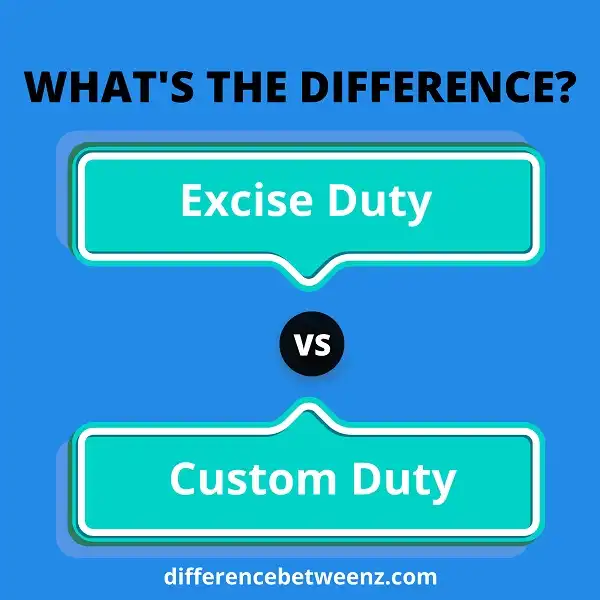When it comes to taxes, there are two main types: excises and customs. Many people don’t know the difference between the two, so here’s a breakdown of what each one is and how they’re applied. Excise taxes are imposed on specific products, while customs duties are levied on goods that are brought into or exported from a country. Understanding the difference between these two types of taxes is critical for businesses and individual taxpayers alike. Let’s take a closer look at each one.
What is Excise Duty?
Excise duty is a tax that is levied on certain goods that are considered to be harmful to humans or the environment. Excise duties are typically imposed on tobacco, alcohol, and gasoline. The main purpose of excise duty is to discourage people from buying these products.
Excise duty is also used to generate revenue for the government. Excise duty is often included in the price of the product, and the amount of excise duty can vary depending on the country. Excise duty is typically collected by the government agencies responsible for regulating the sale of these products.
What is Custom Duty?
- Customs duty is a tariff or tax imposed on goods when transported across international borders. The purpose of customs duty is to protect each country’s economy, residents, jobs, environment, etc., by controlling the flow of goods, especially prohibitive and dangerous items. The custom duty applies to almost every item that crosses an international border, including commercial goods, personal effects, gifts, and vehicles.
- Rates of duty vary by country and type of good. For example, countries may have different rates for imported plants versus imported animal products. Custom duty is often calculated as a percentage of the value of the good being imported. In some cases, a flat rate may be charged per item.
- Customs duty must be paid before customs will release the goods being imported. It is important to be familiar with the customs regulations in the country of import as well as the country of export in order to avoid delays or problems when shipping goods internationally.
Difference between Excise Duty and Custom Duty
Excise duty and customs duty are both taxes that are levied on goods that are imported and exported. Excise duty is a tax that is levied on goods that are manufactured within the country, while customs duty is a tax that is levied on goods that are imported into the country. Excise duty is typically higher than custom duty. Excise duty is levied on all goods that are manufactured within the country, regardless of whether they are for domestic consumption or for export.
Custom duty, on the other hand, is only levied on goods that are imported into the country. Custom duty rates vary depending on the type of goods being imported. Excise duty rates also vary depending on the type of goods being manufactured. Excise duty is collected by the government at the point of manufacture, while customs duty is collected by the government at the point of importation.
Conclusion
Customs duty and excise duty are two types of indirect taxes that are levied on goods. The key difference between the two is that customs duty is levied on imported goods, while excise duty is levied on domestically produced goods. Another key difference is that excise duty is a tax on the manufacture or production of goods, while customs duty is a tax on the importation of goods.


